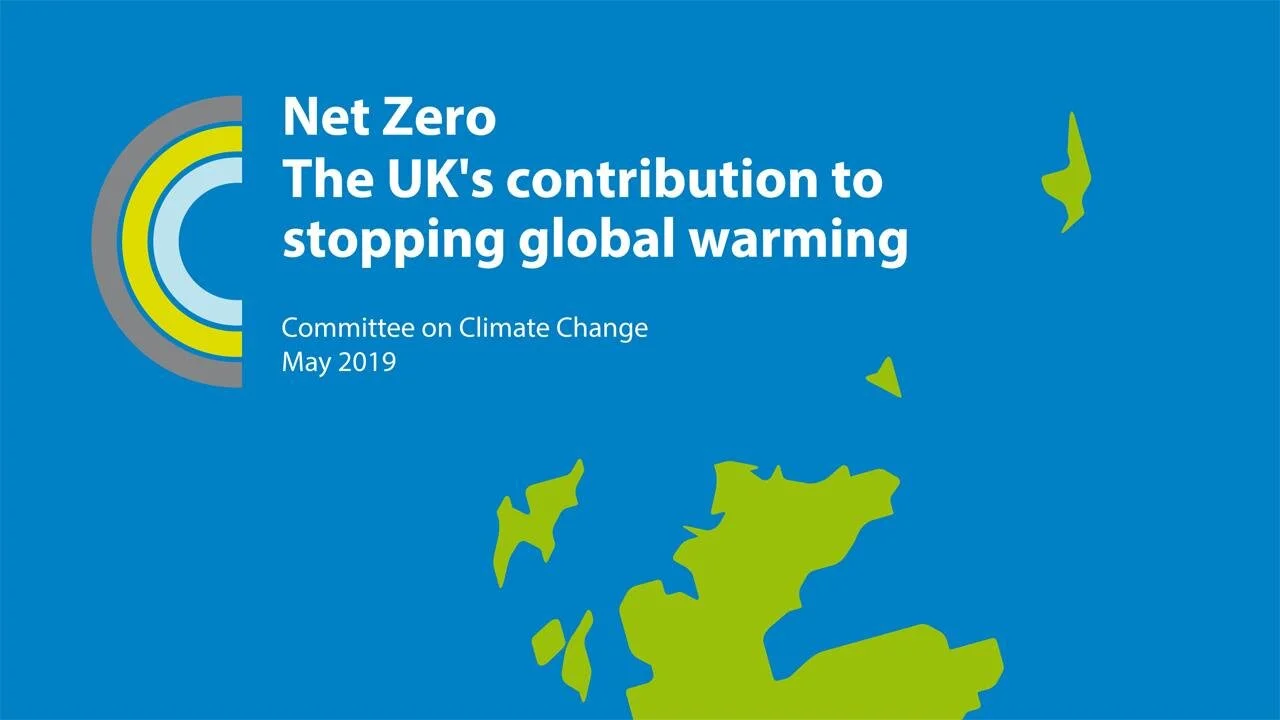Is the Government Doing Enough to Achieve Net Zero?
In 2019 the government amended The Climate Change Act 2008 and legislated for a 100% target reduction in green-house-gas emissions by 2050, in other words ‘net-zero’. The Climate Change Committee (CCC - an independent government advisory body) advised that changing the legislated target from 80% to 100% is the only hope left of being able to deliver our commitments to the Paris Agreement.
The Act lays out incremental targets, and implements 5-year-long statutory caps on GHG emissions. Targets are laid out by the CCC, and based on current scientific, economic and international developments. Each budget is set out 12 years ahead of time, and the government have just budgeted for the 2033-2037 period.
But how can this truly reflect the climate change issues and scientific advice relative to that specific time period?
Given that we are not on track to meet our carbon budgets up until 2033, its evident the target budgeting system is not working well. In fact, the most recent report states that we are not even on track to meet the previous 80% reduction target!
12 years is a significant amount of time in the context of climate change - especially now with the UK’s many knowledgeable scientists researching into the climate emergency. Most of our - somewhat polluting - industries have developed much quicker than first anticipated back in 2008, when this budgeting system was first created.
There are a number of official statements saying that all industries must work hard to reduce their emissions so we can collaboratively meet the net-zero target, yet there has been a distinct lack of concrete action so far. The CCC’s most recent official advice to each government department lacks clarity on how industries are supposed to reduce their emissions.
Fashion is largely forgotten about as an industry in most government literature concerning ways to become net-zero. Given the size of the fashion industry in the UK, and its growing carbon footprint of roughly 26 million tonnes of carbon emissions per year, this is a real worry at a time when the government has committed to achieving net-zero.
In 2019, the government rejected many of the Environmental Audit Committee’s proposals regarding changes in the fashion industry, with no solid reason as to why. They referred to the 25-year Environmental Plan, but the plan has no reference to fashion, textiles or any of the recommendations that the government stated they were committed to working on in their response to the inquiry.
It is exciting to hear the headlines ‘Net-Zero by 2050’ or ‘Government Introduces New Environmental Bill’ - but when you spend some time looking into what measurable actions have been made, it is unfortunate to see that the reality does not match the rhetoric.
It appears the government have made some big promises on the basis of an (evidently) broken climate change policy system. The net-zero legislation and the climate emergency were both declared shortly after the Extinction Rebellion protests in April 2019. This was a propitious move, but almost 2 years on from this it is difficult to find any solid actions or enforceable strategies that will compel the UK to becoming net-zero.
Were these declarations hot air?
Regardless of whether they were or not, it goes to show that the government will give their attention when it’s really demanded. So, let’s try and bring some government bandwidth over to the fashion industry. Sign some petitions, send a letter to your local MP, Regenerate, Rewear, Repurpose, Rebel - and become an SFWPioneer!



